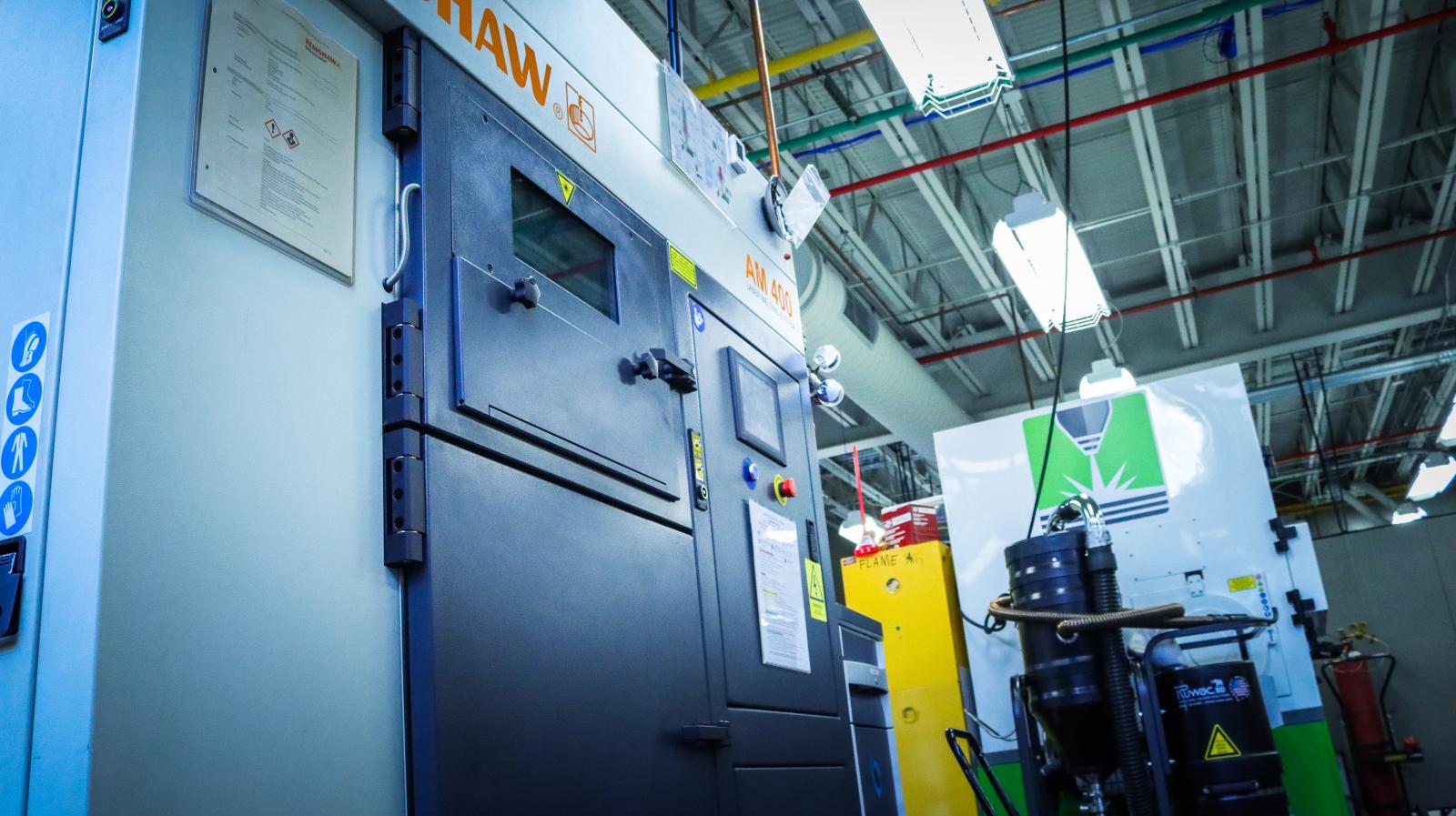Strengthening Supply Chains with Smarter Manufacturing
Story by: Greta Allen
Faster production of lifesaving medical devices and safer air travel are two benefits from Dr. Matthew Priddy’s research to strengthen supply chains and advance manufacturing technologies. As an Associate Professor of Mechanical Engineering at Mississippi State University, Priddy studies how metals behave during 3D printing processes and develops new technologies that make manufacturing faster, more efficient, and more reliable. His work supports industries like defense, aerospace and the biomedical field, aiming to make the production of critical parts more resilient in times of disruption.
“We learned from COVID that everything has to be working smoothly for us to get and produce products on time. Additive manufacturing can allow us to cut out a lot of those middle steps in our manufacturing logistics,” Priddy explained.
One of Priddy’s main projects involves creating systems that collect and analyze data during the manufacturing process, known as in-situ monitoring. Traditionally, parts are inspected after they are built, which can be time-consuming and costly if problems are found. By using sensors and software to monitor printing in real time, Priddy’s research allows manufacturers to detect issues early and ensure parts meet quality standards without unnecessary delays or waste.

“As we build larger, more complex parts, it’s difficult for us to evaluate them post-build. You have to do destructive or nondestructive testing, which is extremely expensive and time-consuming. Ideally, you print the part, and you know it’s good. In-situ monitoring allows us to collect information during the printing process, so it’s become a big focus area for us,” said Priddy.
At MSU’s Center for Advanced Vehicular Systems (CAVS), Dr. Priddy serves as the Additive Manufacturing Lead, collaborating with a multidisciplinary team of engineers and scientists. The team develops innovative solutions to monitor and control the additive manufacturing process in real-time.
Priddy said, “The materials research that is being done at CAVS is cutting edge for the state and really the region. While originally intended for automobile research, CAVS has expanded its portfolio to include research topics that support all types of vehicles --inluding planes, submarines, and aircraft carriers.”
By advancing additive manufacturing technology, Priddy’s work helps industries become more self-sufficient and less dependent on traditional supply chains. His research provides tools that allow parts to be made on-site, reducing downtime and improving resilience in sectors like aerospace, defense, and energy. While the science behind it is complex, the goal is simple: to create solutions that keep industries running, even in challenging times.


